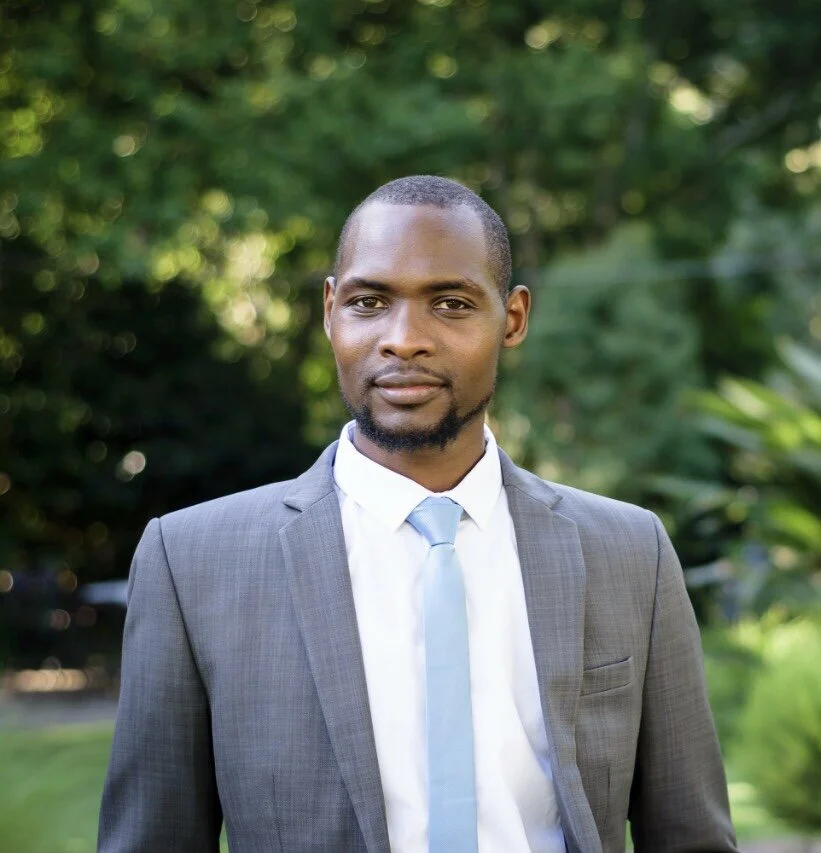““When faced with new challenges, I usually motivate myself by contemplating how those who were first to succeed would have felt in the beginning.””
Terry Kipkorir is a Newton International Fellowship awardee, a fellowship delivered by the British Academy, the Academy of Medical Sciences and the Royal Society which enables researchers to work for two years at a UK institution with the aim of fostering long-term international collaborations. Terry graduated from Yale University with a BA in Biology and received his PhD in Medical Microbiology from University of Cape Town, South Africa. He is currently pursuing research exploring the regulation of protein synthesis by non-coding RNA - a genetic molecule that carries a copy of the DNA code but not translated into proteins - and vitamin B12 in Mycobacterium tuberculosis, a bacterium which causes tuberculosis (TB), the infectious disease causing the most annual deaths across the world, under the supervision of Dr. Kristine Arnvig, a leading expert in RNA biology and TB.
Terry outside his lab in London with Prof. Finn Werner's (far left) and Dr. Kristine Arnvig's (second from left)
Terry was born and raised in Kiptugumo, Kericho, Kenya. Raised in the archetypal communal parenting style of rural villages, Terry began to notice that there were few people in his community with education beyond the college level. To make up for this deficiency in academic role models, his father never failed to encourage him to develop a pioneering and curious attitude towards education and towards life. It’s this curious attitude instilled by his Father that has continued to push Terry to take up new challenges with lots of courage and boldness. "When faced with new challenges, I usually motivate myself by contemplating how those who were first to succeed would have felt in the beginning."
Terry was introduced to research at the end of his freshman year in 2007 after receiving the Yale STARs Summer Research Award. Under the mentorship of Prof. Karen Anderson, he conducted a short project to grow crystals of a cell-wall protein of E. coli, a bacterium that is found commonly in the gut. This experience helped him to form a positive attitude towards research, which he largely credits to the beginner’s luck he had in his first try to develop those protein crystals. STARs also supported his own research project, led by Prof. Anderson, on testing inhibitors of the reverse transcriptase enzyme of the HIV-1 virus. From these tests, Terry described a mechanism by which single mutations affected the interactions between the virus enzyme and the antivirals, resulting in drug resistance.
“In 2005, after excelling in secondary school, Terry was one of the few selected to join KenSAP’s second cohort. With KenSAP’s support and guidance, he was admitted to Yale University where he pursued a BA in Biology, becoming the first in his extended family to attend university abroad.”
Terry graduating with PhD (2019): Hon. Graca Machel, then Chancellor of UCT, confers degree.
Studying and living abroad is not easy. The physical distance away from family places a huge mental and emotional toll on students. Even with such challenges to grapple with, Terry has always enjoyed his study and work: his passion and curiosity are very valuable in keeping him focused. Knowing that he has the support of his family and community inspires him too. Additionally, Terry knows he can always count on the support of friends, who are like a second family, made through KenSAP. An important challenge for Terry is in trying to carve a niche for himself and establishing himself in an area of expertise. As an early-career scientist, this means working endlessly, and putting in long hours to meet targets. This is often a balancing act: trying to manage work and non-work life.
“Additionally, Terry knows he can always count on the support of friends, who are like a second family, made through KenSAP. ”
With so much zeal for his work, Terry is working towards making science accessible to people in his local community, to whom he feels indebted to for their support over the years. Having a grandmother who does not have a formal education yet is so eager to learn about his studies and research work continues to challenge Terry to present his work in a direct, easy-to-understand manner. The misinformation and obfuscation of facts surrounding the COVID-19 pandemic really drove the point home that if science is not well communicated, its value would be lost to the detriment of society. With this in mind, Terry started a Youtube channel through which he communicates fundamental concepts in biology in his native language, Kipsigis. Going forward, he plans to expand this effort and reach a wider audience.
Terry’s loving grandmother.




